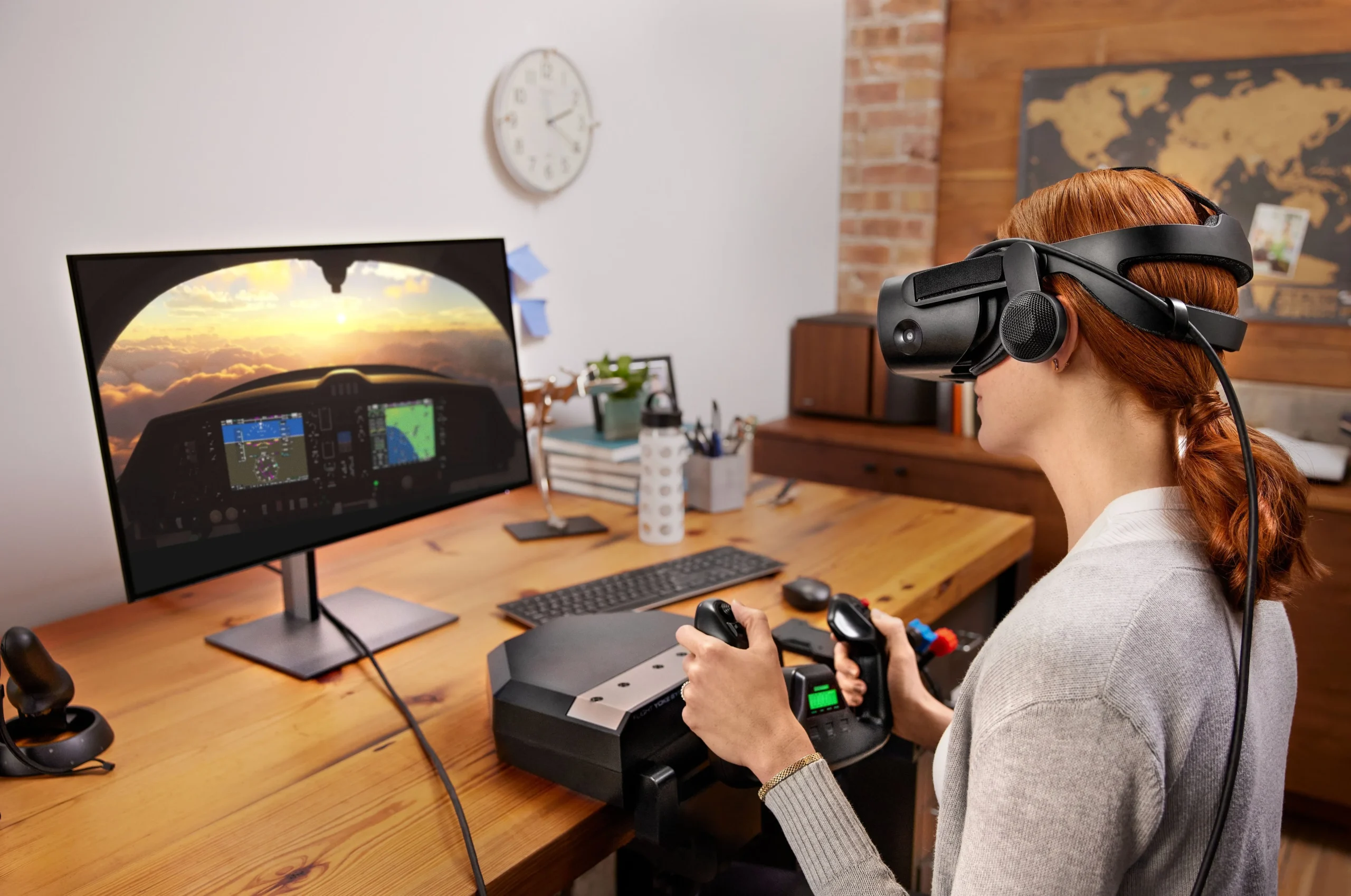Jun 10, 2024
Introduction
Virtual reality (VR) technology has transformed gaming, offering immersive experiences that once seemed the stuff of science fiction. Among the various VR offerings available, flight simulators have taken center stage, captivating enthusiasts with their blend of realism and exhilaration. Here’s an in-depth look at VR flight simulators and why they are rapidly becoming a favorite in the immersive gaming realm.
What Are VR Flight Simulators?
A VR flight simulator is a sophisticated machine designed to emulate the experience of flying an aircraft, be it a plane, helicopter, or even a spacecraft. Using high-resolution displays, realistic sound, and sensors, these simulators create a fully immersive environment. Players use specialized controllers, such as joysticks or yokes, to maneuver the virtual aircraft. These simulators range from full-scale cockpit setups to more compact standing platforms equipped with a VR headset and wireless controllers. Popular VR flight simulators include X-Plane 11, Microsoft Flight Simulator, and Digital Combat Simulator World.
Advantages of VR Flight Simulators
Safe Environment: VR flight simulators offer a risk-free setting to practice and explore different flying scenarios, free from the dangers associated with actual flying.
Immersive Experience: These simulators provide a highly realistic sense of control and the sensation of flight, enhancing the overall experience.
Accessibility: VR makes flying accessible to everyone, from beginners to seasoned pilots, promoting learning and potentially nurturing future real-world pilots.
Types of VR Flight Simulators
VR Flying Simulator: These simulators replicate the experience of piloting an airplane, whether it’s a commercial airliner or a military jet. They often feature motion control and realistic wind resistance to enhance the immersive experience, accompanied by lifelike sound effects.
VR Roller Coaster Simulator: Designed to mimic the thrill of amusement park rides, these simulators provide the sensation of riding a roller coaster, complete with drops, twists, and turns. Advanced haptic feedback systems amplify the realism, making users feel as though they are on a real ride.
VR Slide Simulator: Offering a unique experience of sliding, these simulators recreate environments like exotic water parks. Users can slide down virtual water pipes and experience the sensations of wind and gravity, similar to actual water slides.
Each type of VR simulator provides a distinct experience, allowing users to choose based on their preferences. VR flying simulators are educational and realistic, VR racing simulators offer adrenaline-pumping action, and VR roller coaster and slide simulators bring amusement park thrills to the home.
VR Technology and the Future of Flight Simulators
Virtual reality technology is advancing rapidly, with continuous innovations enhancing the user experience. Here’s a glimpse into some of the latest developments shaping the future of VR flight simulators:
Haptic Feedback Technology: Advanced haptic feedback systems add tactile sensations, vibrations, and movements to VR experiences, increasing realism and immersion.
Artificial Intelligence (AI): AI advancements enable more realistic simulations by replicating real-world scenarios in high definition. This provides challenging environments for pilots, including variable weather conditions and emergency situations.
Wireless Connectivity: Cutting-edge wireless technology enhances VR experiences by removing the constraints of wired connections, allowing for greater mobility and a more immersive experience.
Future Possibilities for the Aviation Industry
Virtual reality holds immense potential beyond gaming. In the aviation industry, VR could revolutionize training, aircraft design, and maintenance. Engineers and manufacturers could use VR for virtual inspections and testing of new aircraft models, saving time and reducing costs. This technology could streamline the development of efficient and safe aircraft, pushing the boundaries of innovation in aviation.
Conclusion
VR flight simulators offer an unparalleled immersive experience for aviation enthusiasts and gamers alike. With the benefits of accessibility, safety, and realistic simulation, they are an excellent alternative for those unable to experience real-life flying. As technology continues to evolve, the popularity and capabilities of VR flight simulators are set to soar. So why wait? Discover the thrill of virtual flying at your nearest VR arcade and take to the skies without leaving the ground!





